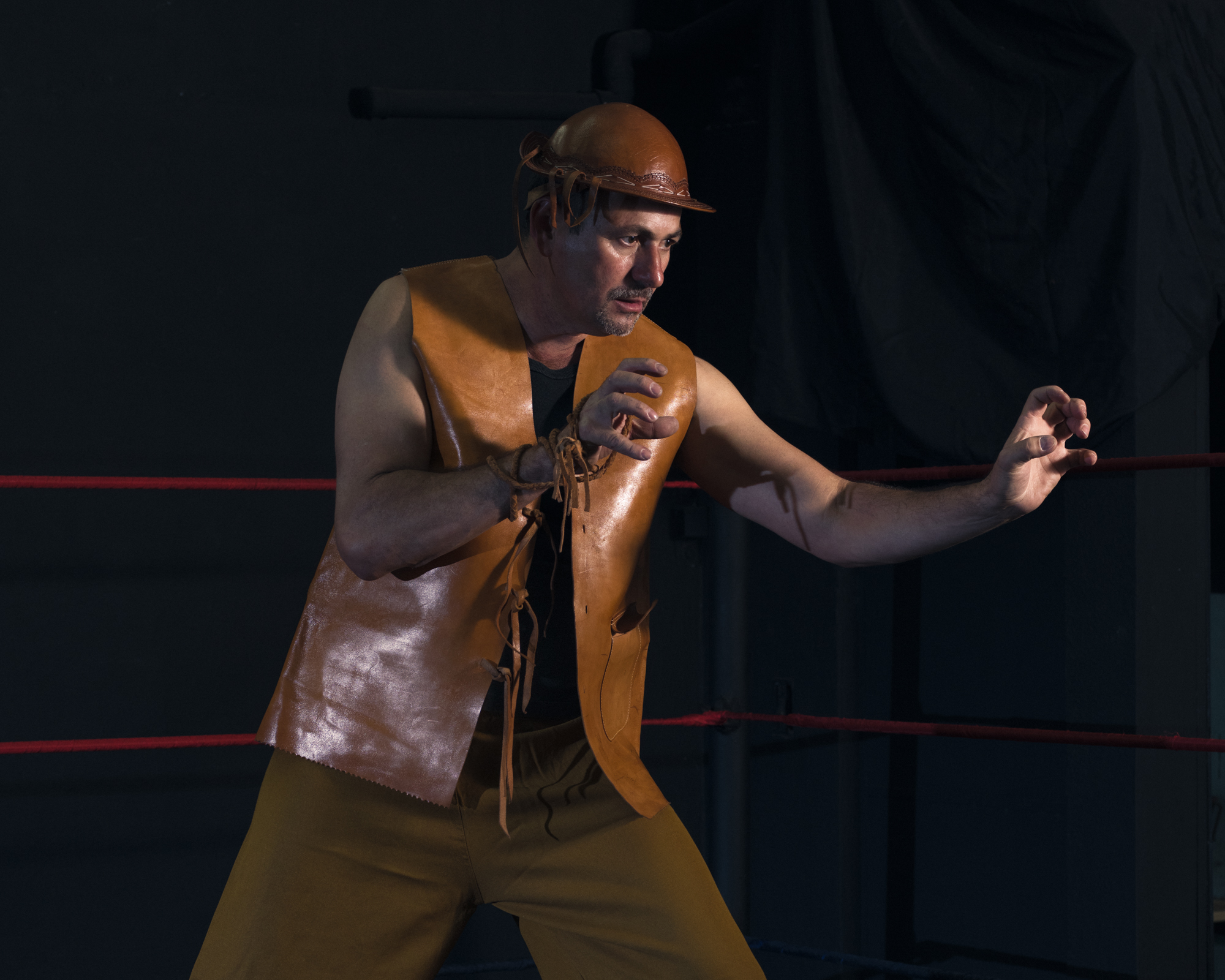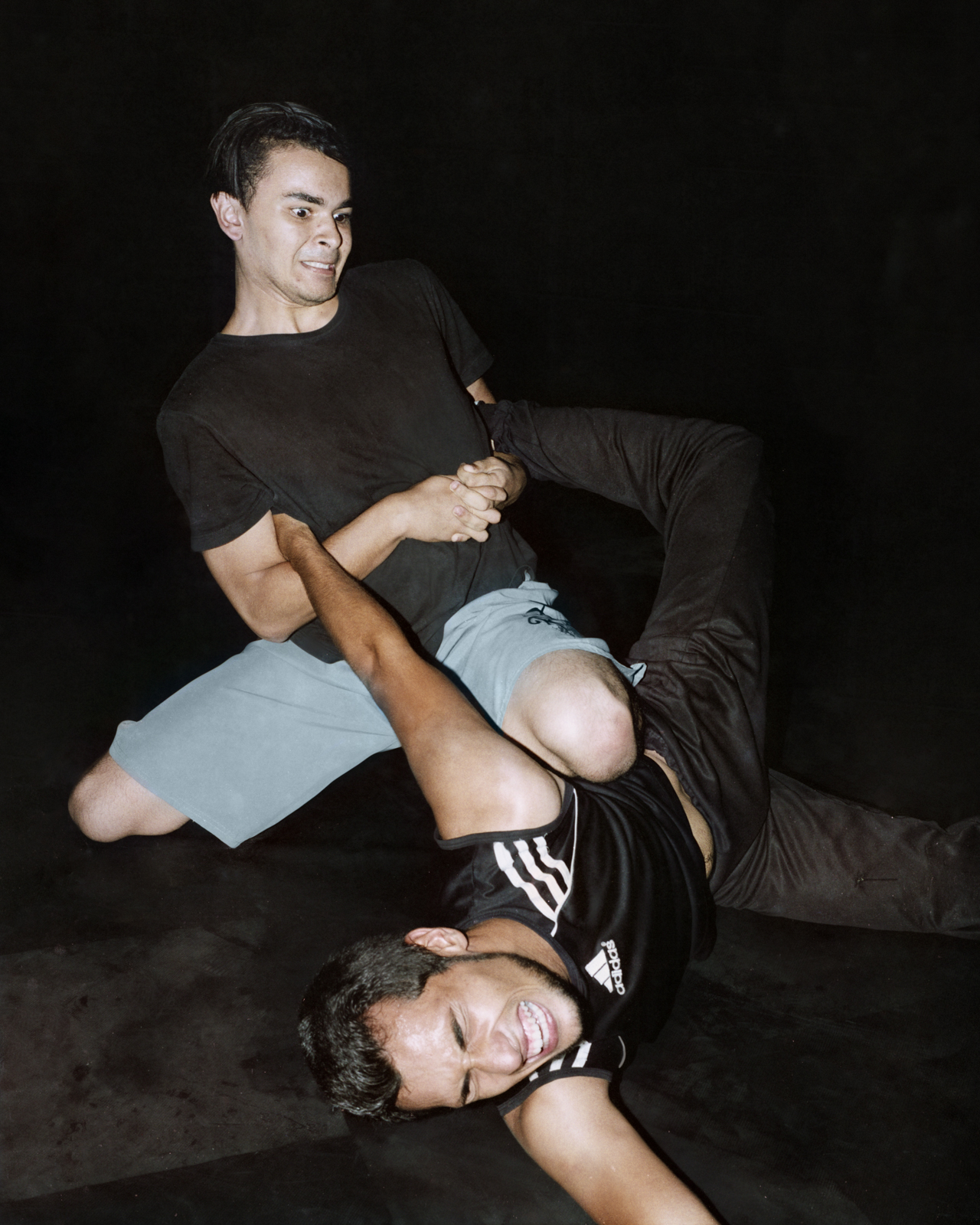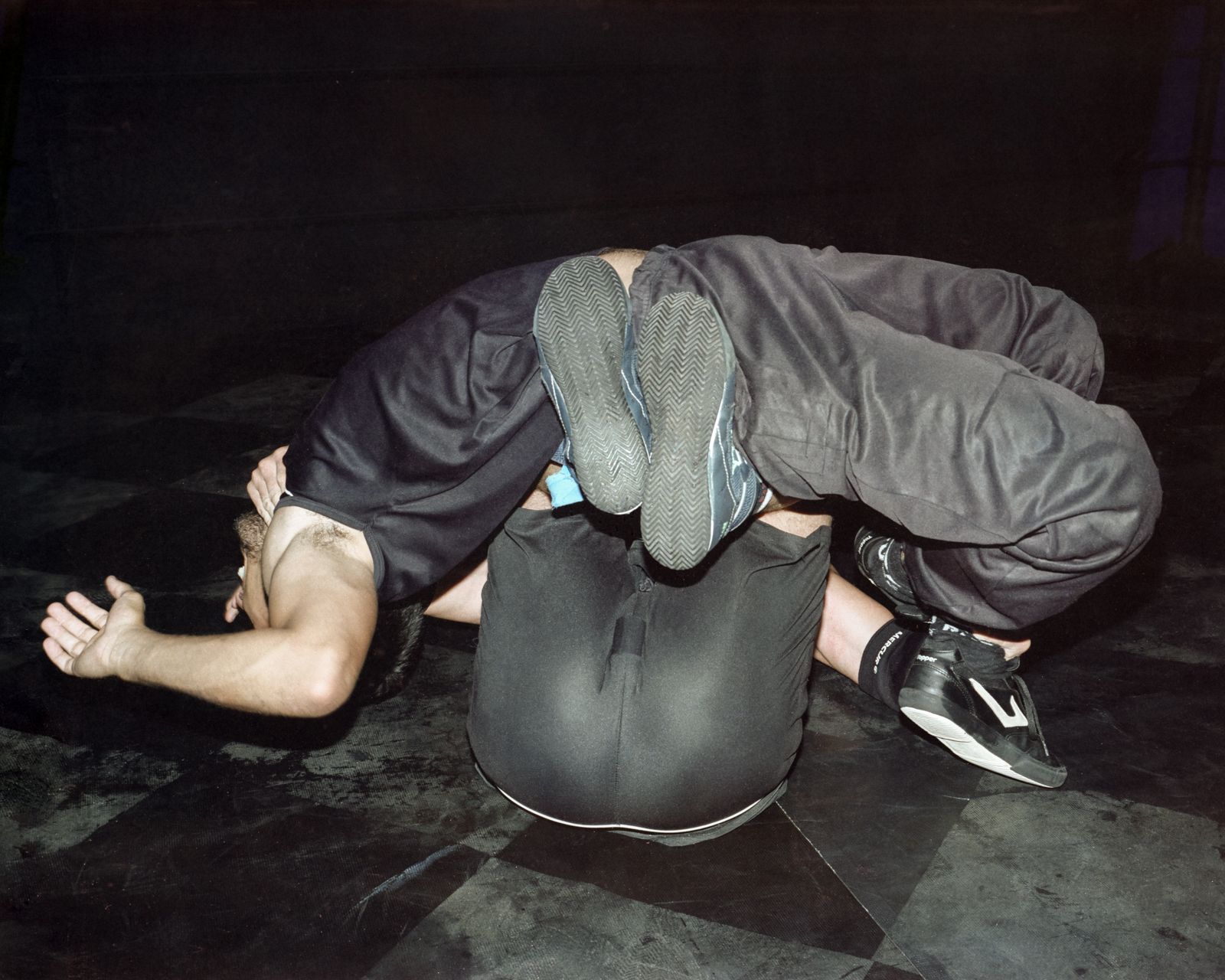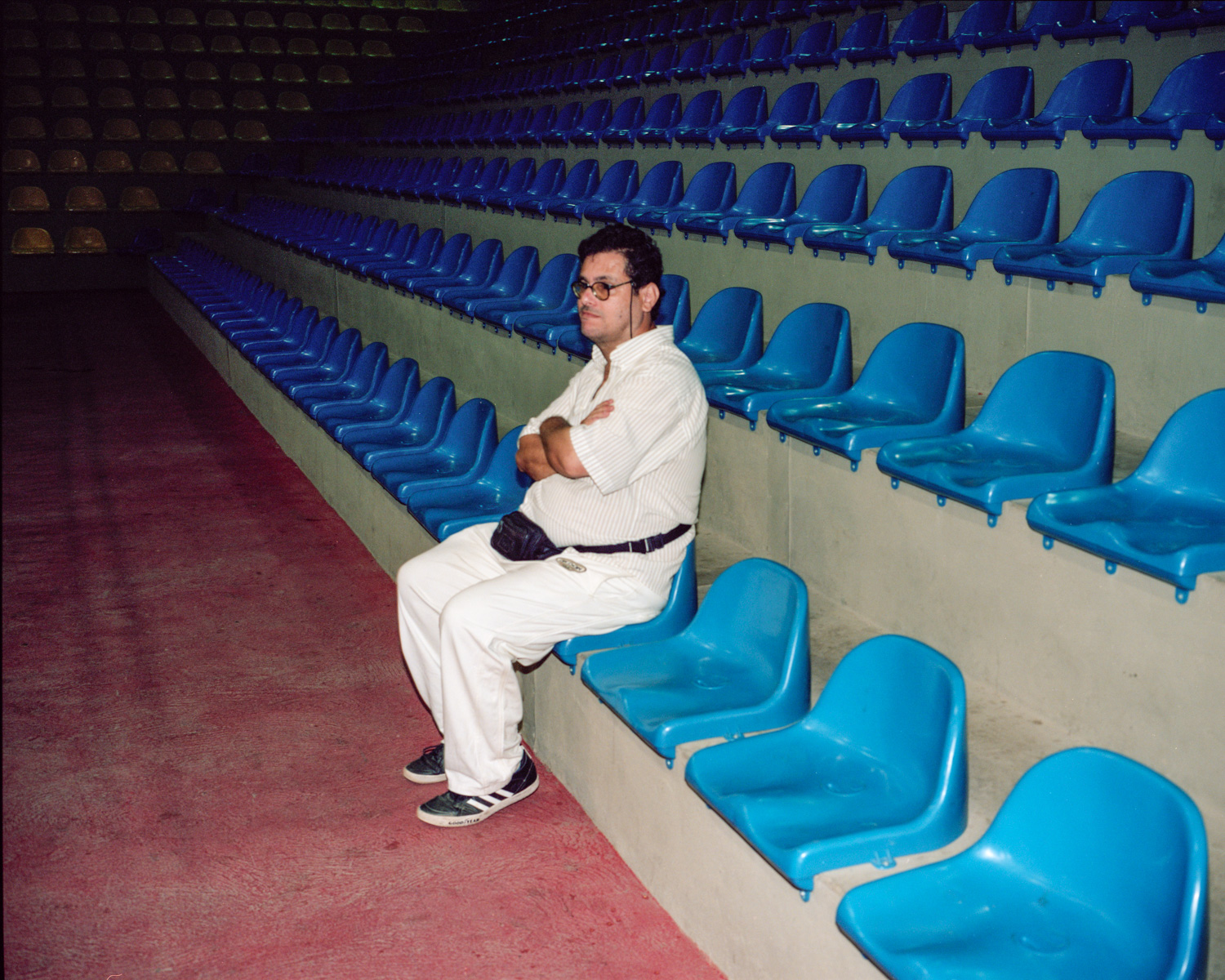Gigantes
1. According to Hesiod’s Theogony, the Gigantes were a tribe of one hundred Giants born of Gaia, the Earth, from the drops of blood that fell when Uranus, the Sky, was castrated by their Titan son Kronos and had his testicles cast into the sea. The origin of the story of the Gigantes must probably be sought for in similar physical phenomena in nature.
Roland Barthes opens his book “Mythologies” with a chapter on Wrestlers.
Wrestling is a staged spectacle acting out the public's basic concepts of Suffering, Defeat and above all, Justice. The wrestlers (actors), in a immediate pantomime, portray grossly-exaggerated stereotypes of human weakness: the traitor, the conceited, the 'effeminate teddy-boy'. The audience expects to watch them suffer and be punished for their own transgressions of wrestling's rules in a theatrical version of society's ideology of justice.
“In the ring, and even in the depths of their voluntary ignominy, wrestlers remain gods because they are, for a few moments, the key which opens Nature, the pure gesture which separates Good from Evil, and unveils the form of a justice which is at last intelligible. “
2. Brazil. Peak viewing time. Kids and adults from the 1970’s would watch them on TV: Os Gigantes do Ringue (The Giants of the Ring).Influenced by the mexican Lucha Libre, this freestyle wrestling crew saw its fame spread beyond national borders, presenting characters from all kinds to their audience, mixing wrestling and theater. Today, far from the popularity from the early days and not enough appeal for big TV channels, the attempt of a “come back” seems to be difficult.Looking for links between mythology and reality, between the fantastic and the pragmatic, I try to portray a group that, being permanently renewed, fights to have that former glory.
Roland Barthes opens his book “Mythologies” with a chapter on Wrestlers.
Wrestling is a staged spectacle acting out the public's basic concepts of Suffering, Defeat and above all, Justice. The wrestlers (actors), in a immediate pantomime, portray grossly-exaggerated stereotypes of human weakness: the traitor, the conceited, the 'effeminate teddy-boy'. The audience expects to watch them suffer and be punished for their own transgressions of wrestling's rules in a theatrical version of society's ideology of justice.
“In the ring, and even in the depths of their voluntary ignominy, wrestlers remain gods because they are, for a few moments, the key which opens Nature, the pure gesture which separates Good from Evil, and unveils the form of a justice which is at last intelligible. “
2. Brazil. Peak viewing time. Kids and adults from the 1970’s would watch them on TV: Os Gigantes do Ringue (The Giants of the Ring).Influenced by the mexican Lucha Libre, this freestyle wrestling crew saw its fame spread beyond national borders, presenting characters from all kinds to their audience, mixing wrestling and theater. Today, far from the popularity from the early days and not enough appeal for big TV channels, the attempt of a “come back” seems to be difficult.Looking for links between mythology and reality, between the fantastic and the pragmatic, I try to portray a group that, being permanently renewed, fights to have that former glory.
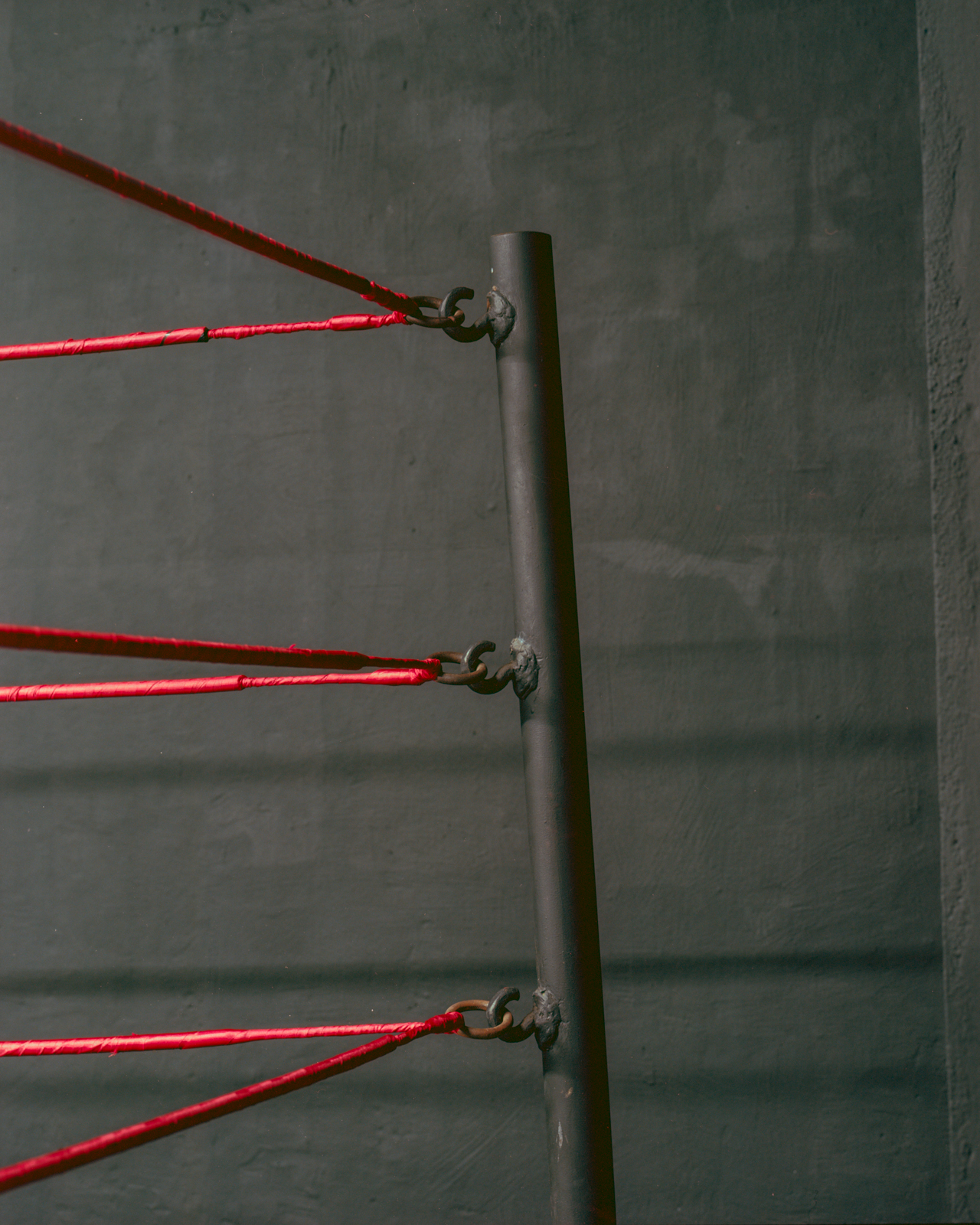



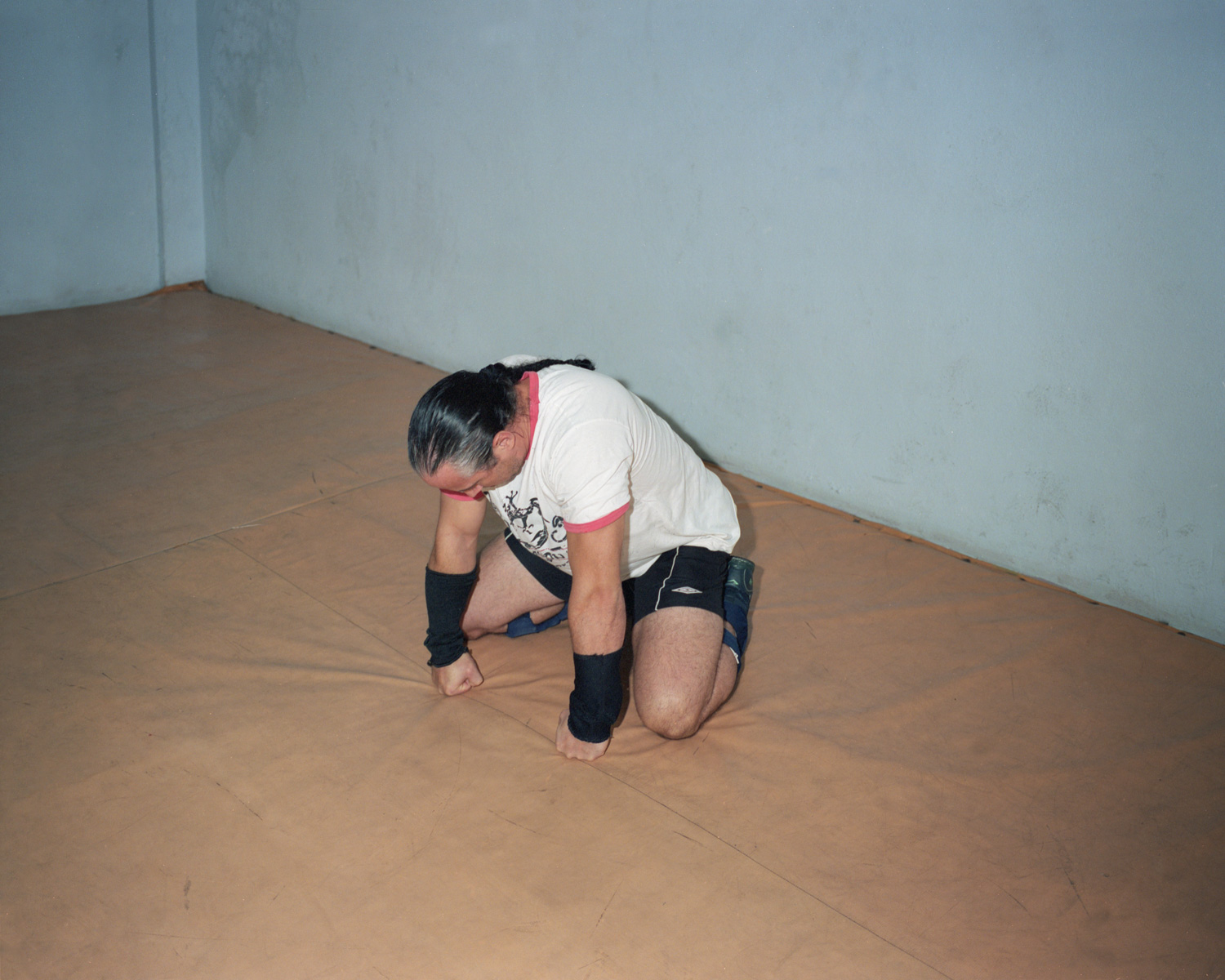

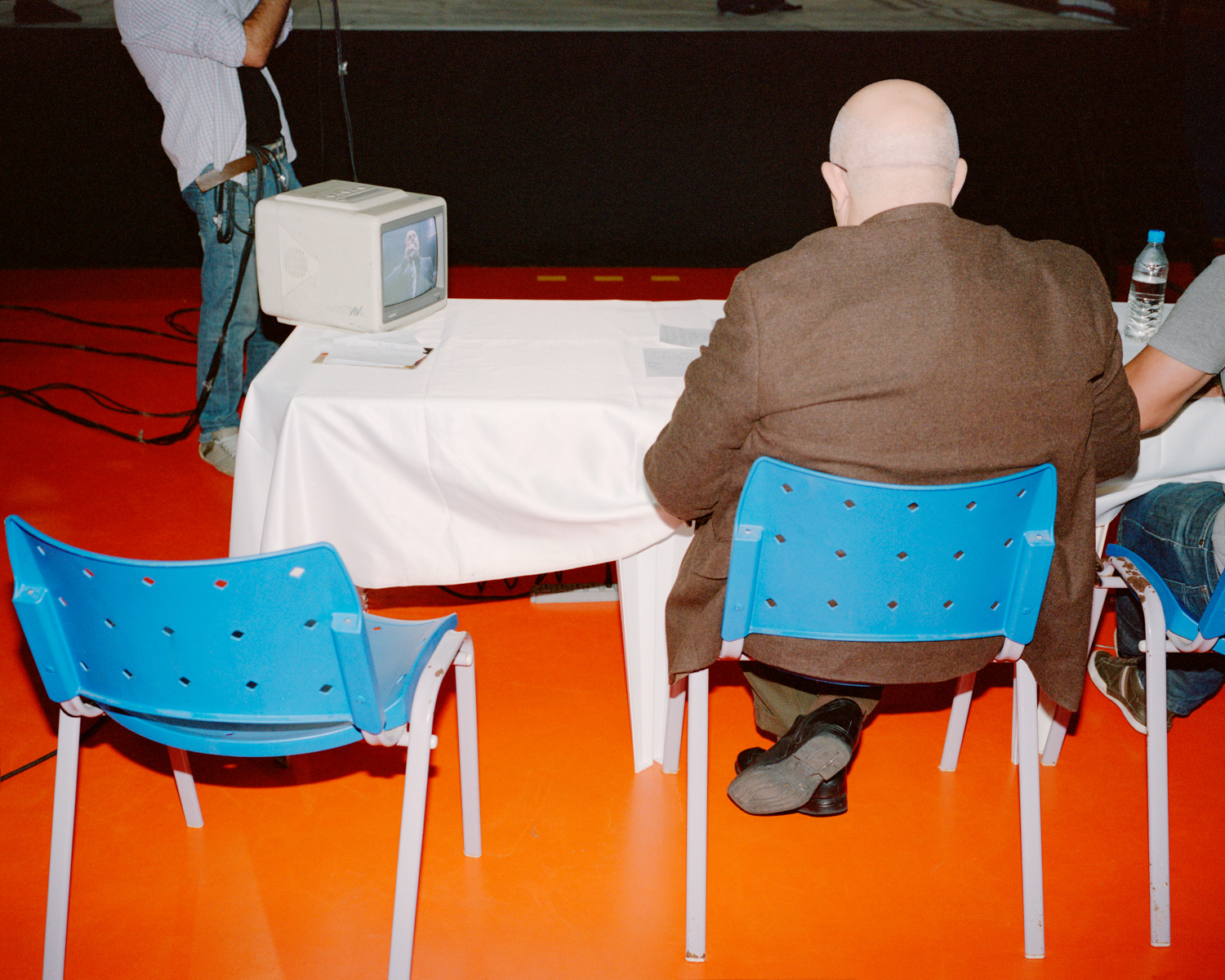
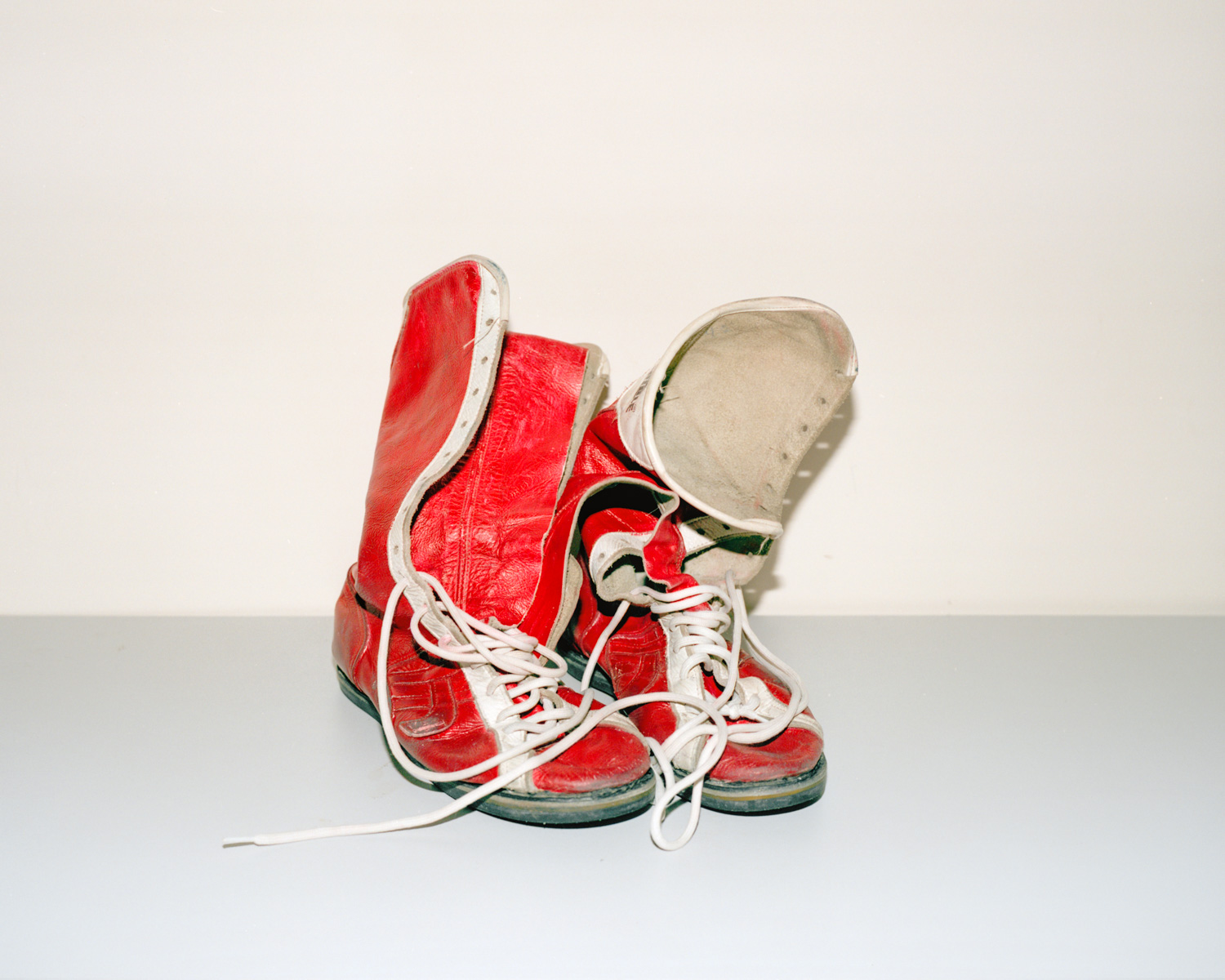





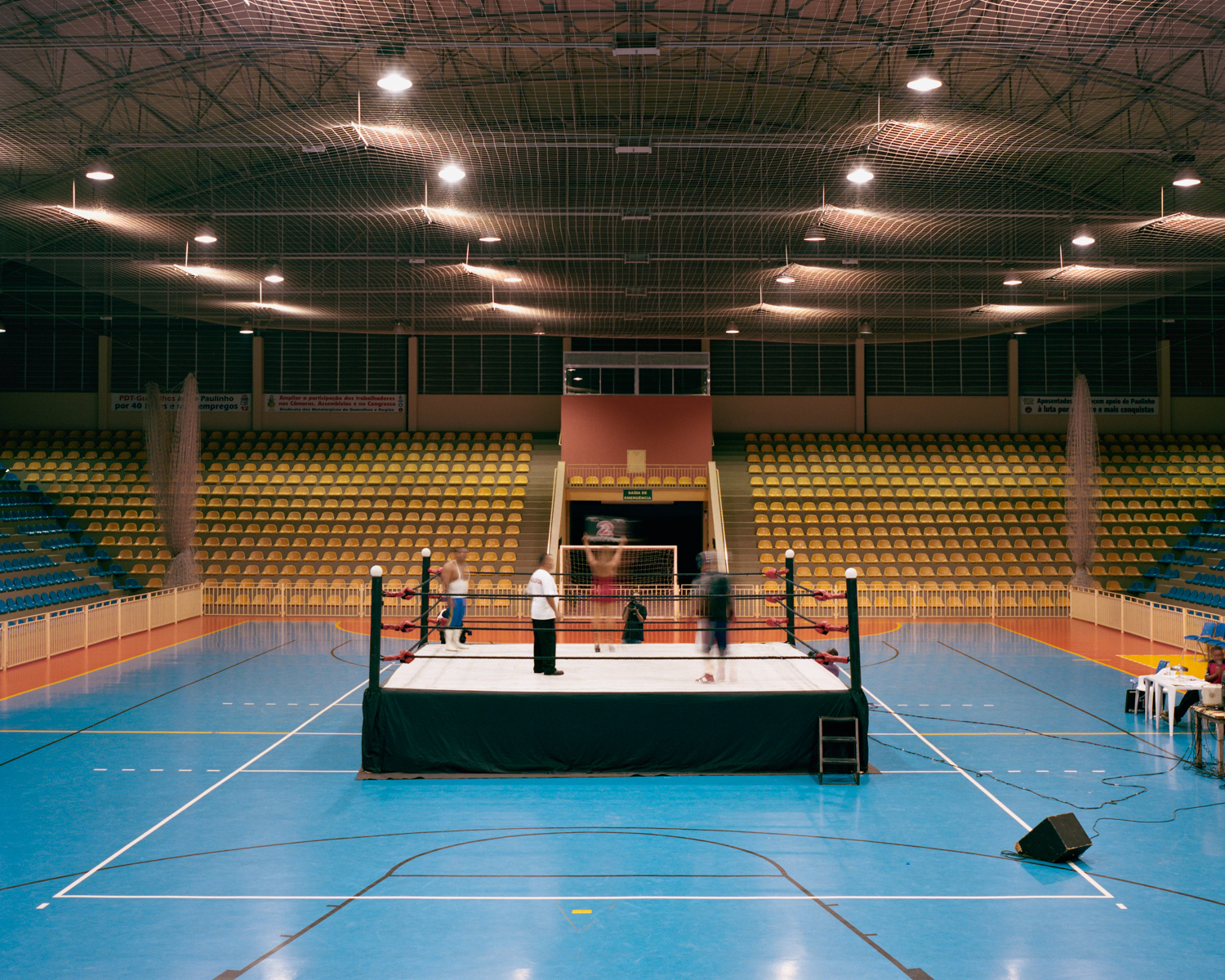
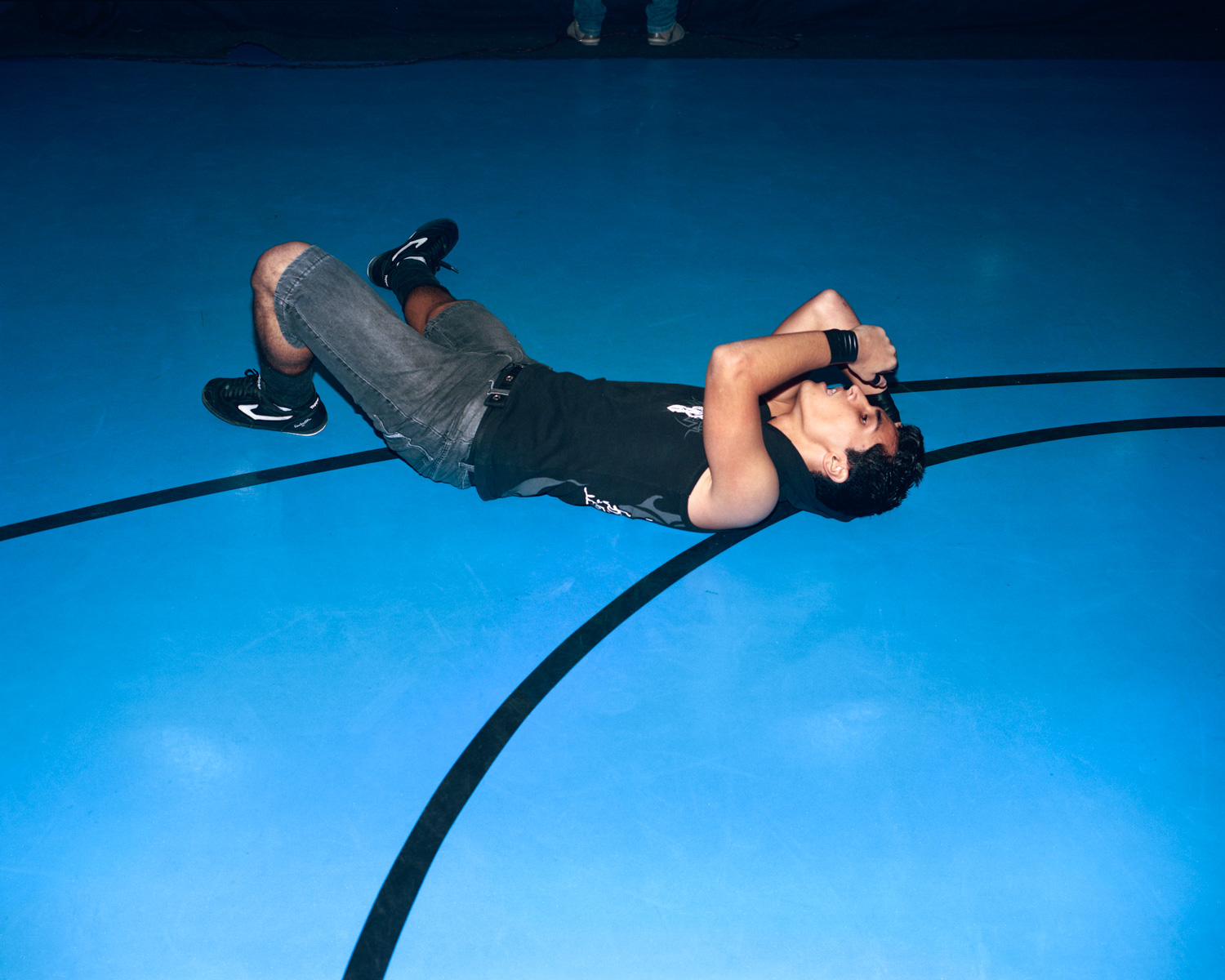
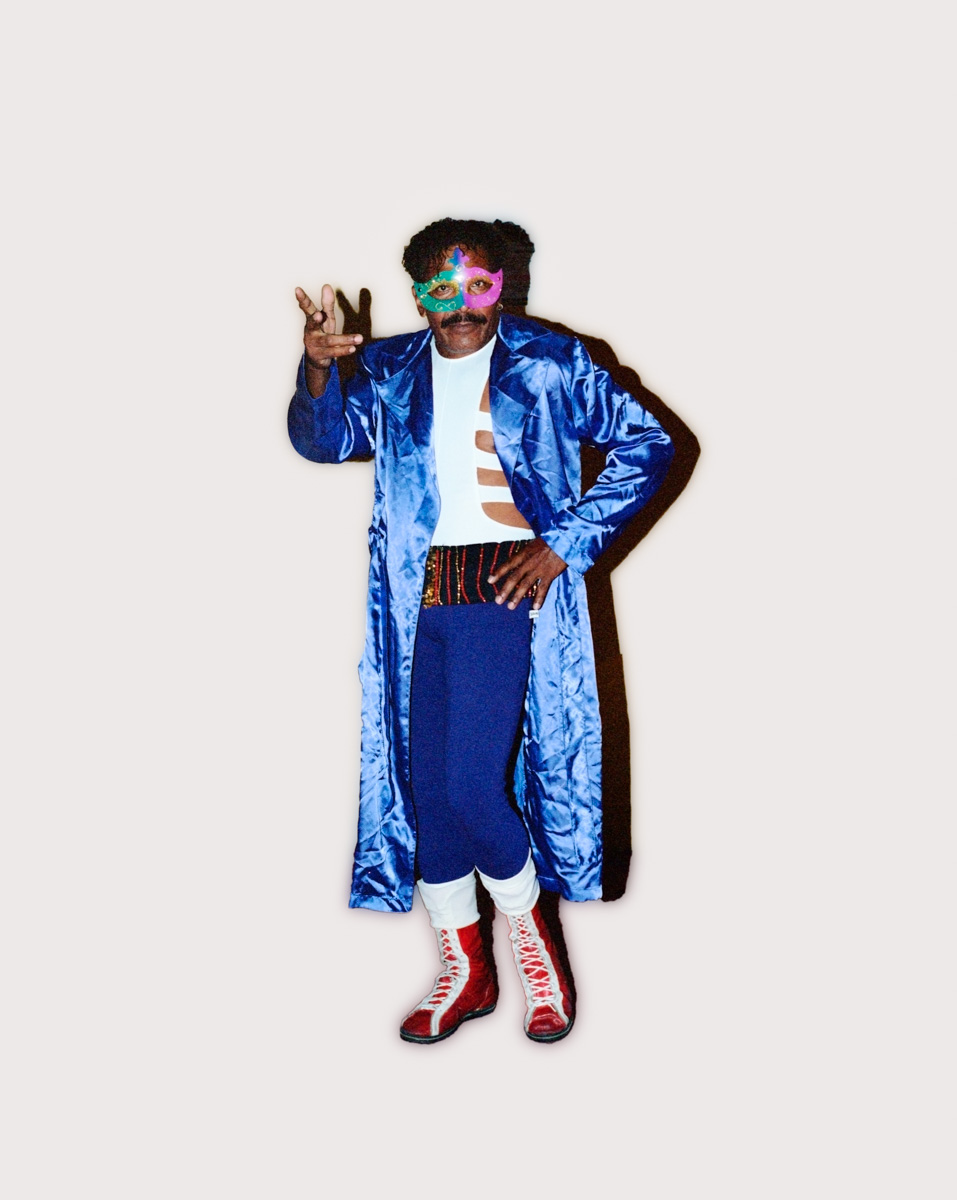

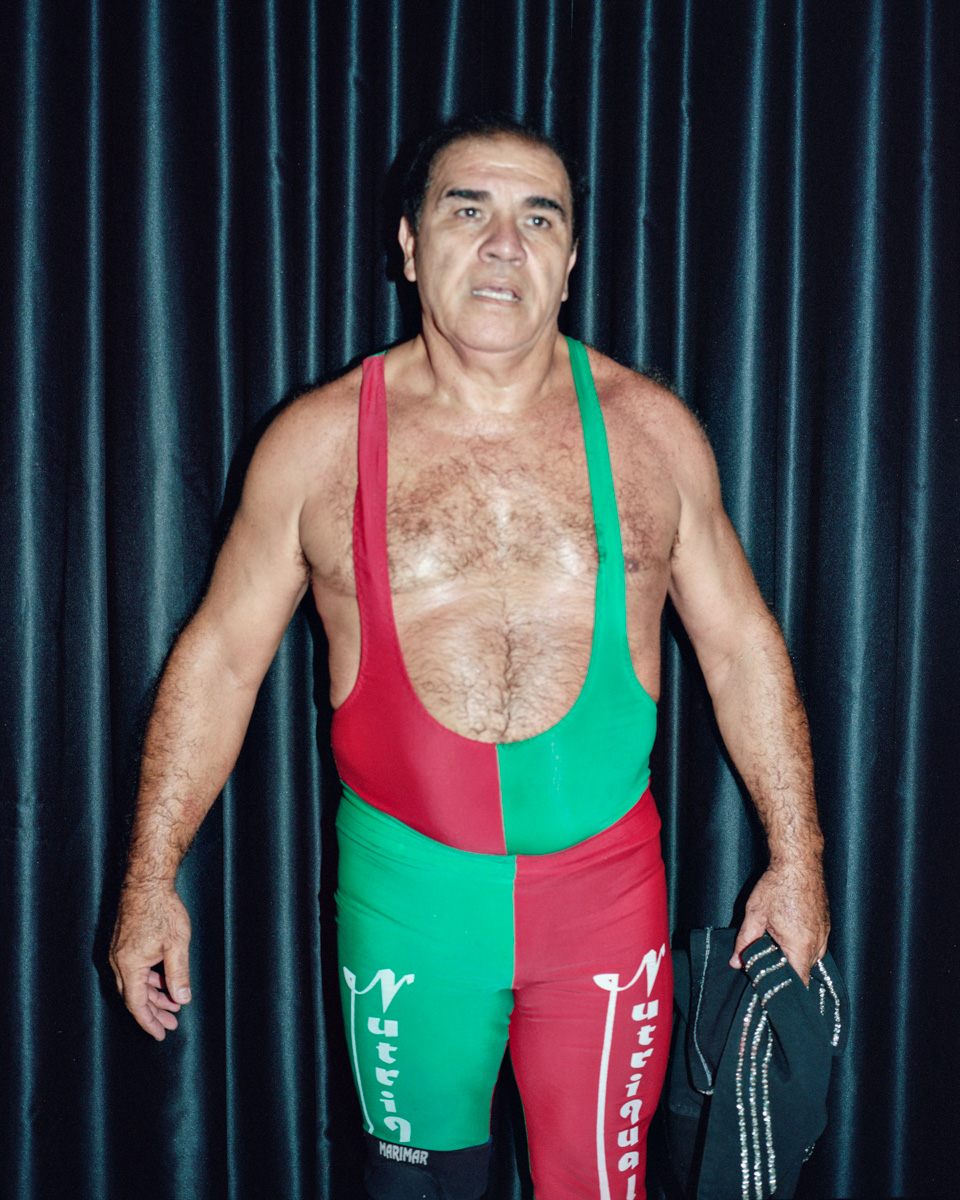

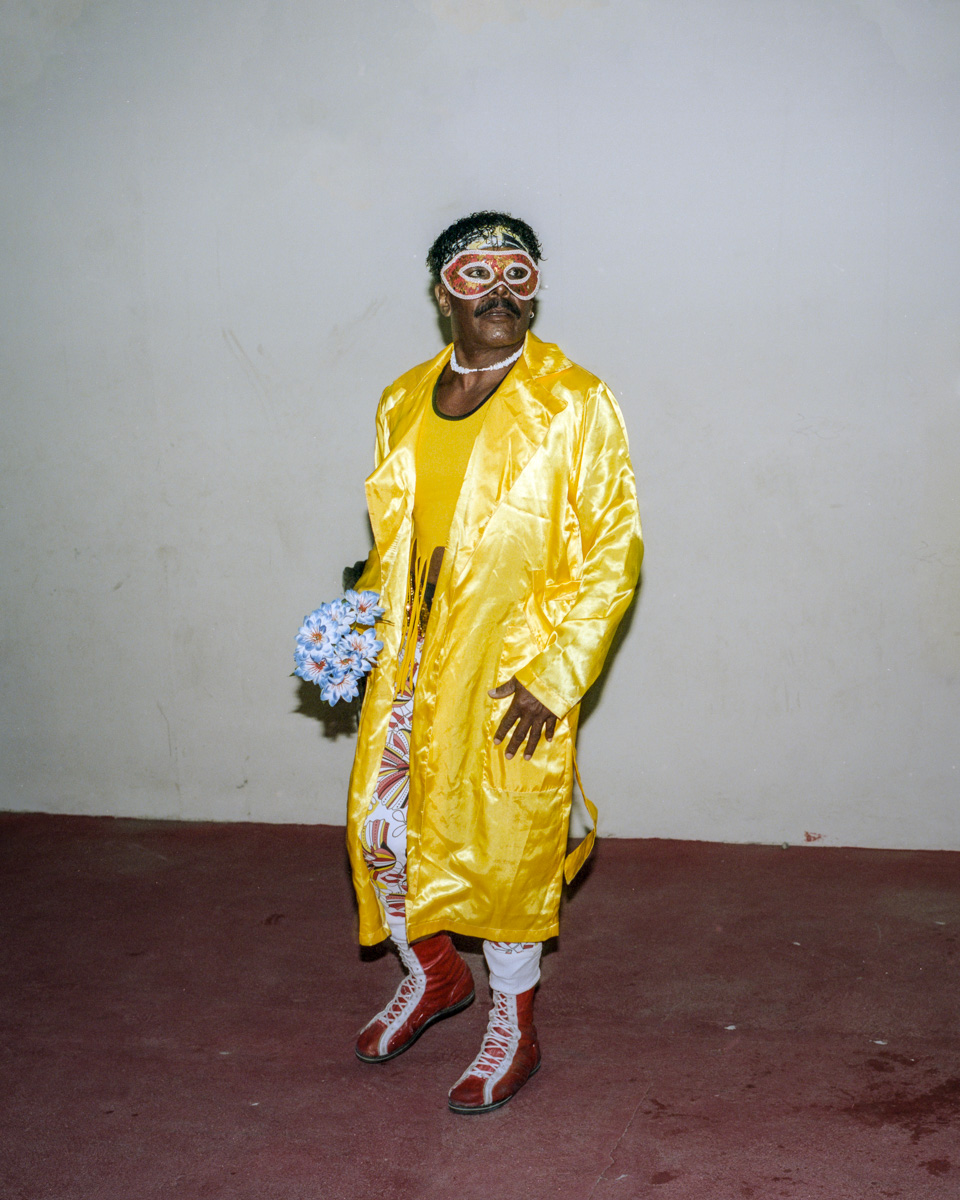

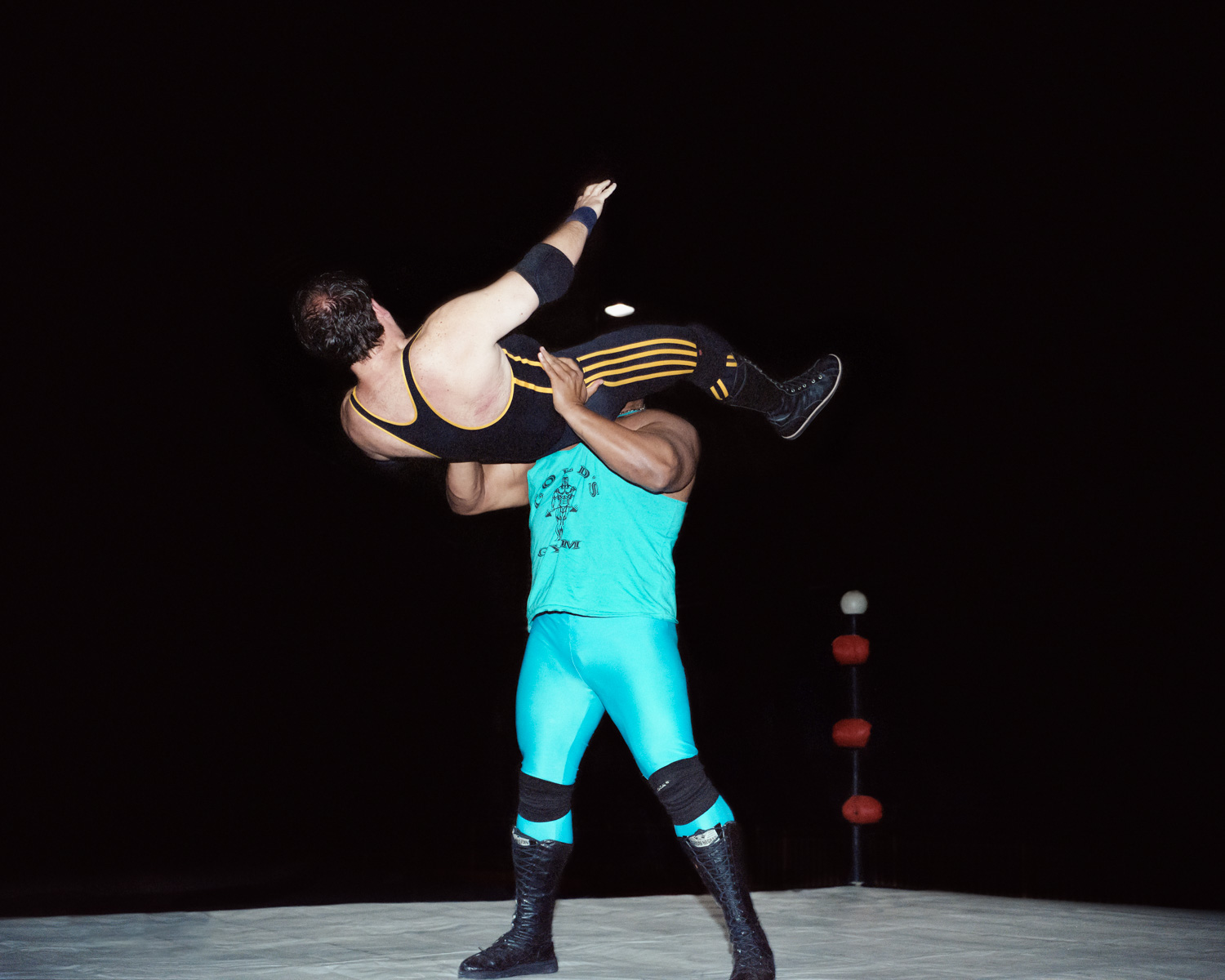
Thus he spoke, and monstrous Gaia laughed loudly in her heart.She hid him in an ambush and placed in his handsa serrated sickle, and apprised him of her whole cunning.Great Ouranos came, bringing the night,and spread out around Gaia, longing for love,spreading himself full upon her. His son reached out from ambushwith his left hand, and in his right he held the sickle,long and serrated and the genitals of his fatherhe quickly reaped and threw them behind his backto be carried away. But they did not flee from his hand fruitlessly,As many drops of blood spurted forth,all of them Gaia received. In the revolving years,she bore the powerful Erinyes, and great Giants,gleaming in their armor, holding long spears in their hands...”
HESIOD - Theogony. Edited with Prolegomena and Commentary by M. L. West. Oxford,Clarendon Press, 1971.
HESIOD - Theogony. Edited with Prolegomena and Commentary by M. L. West. Oxford,Clarendon Press, 1971.

